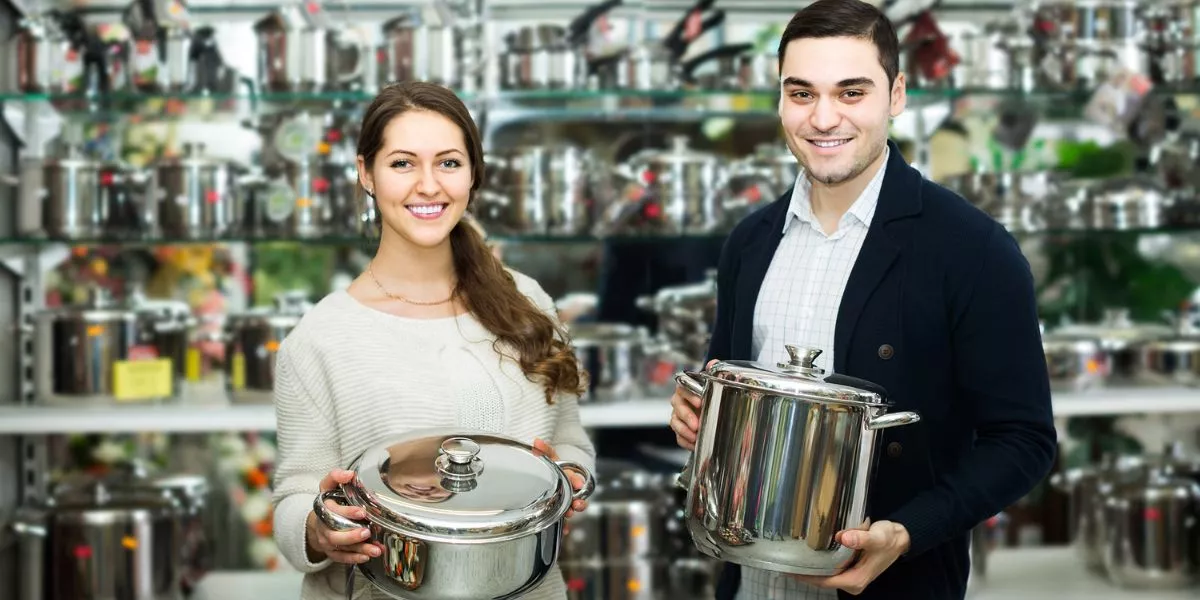
When it comes to selecting non-toxic cookware, navigating through the various options can seem overwhelming. Your health and the quality of your meals depend on this choice, so it's crucial to make an informed decision. Considerations like material safety, cooking habits, and even environmental impact play significant roles in determining the best fit for your kitchen. The quest for the best non-toxic cookware goes beyond just the label; understanding the nuances of different materials and their implications is key to making a wise selection.
Benefits of Non-Toxic Cookware
When choosing non-toxic cookware, you prioritize your health and well-being by avoiding harmful chemicals that can leach into your food during cooking. Non-toxic cookware offers numerous benefits beyond just keeping harmful substances out of your meals.
One significant advantage is that non-toxic cookware tends to be more durable and long-lasting compared to traditional cookware. This means you won't have to replace your pots and pans as frequently, saving you money in the long run.
Additionally, non-toxic cookware is often easier to clean due to its non-stick properties, reducing the need for harsh chemical cleaners that can also pose health risks. Cooking with non-toxic materials can enhance the flavors of your dishes by preventing any unwanted chemical reactions that may occur with toxic cookware.
Furthermore, non-toxic cookware is more environmentally friendly as it doesn't release harmful toxins into the air when heated. By choosing non-toxic cookware, you aren't only safeguarding your health but also contributing to a safer and cleaner environment for everyone.
Popular Non-Toxic Cookware Materials
Non-toxic cookware materials such as stainless steel, ceramic, and cast iron are popular choices for health-conscious individuals. Stainless steel is durable, non-reactive, and easy to clean, making it a versatile option for various cooking needs.
Ceramic cookware, made from natural materials like clay and water, offers a non-stick surface without the harmful chemicals found in traditional non-stick pans. It's important to note that not all ceramic cookware is created equal, so be sure to choose brands that are free from lead, cadmium, and other toxins.
Cast iron cookware is known for its excellent heat retention and even cooking. When properly seasoned, cast iron develops a natural non-stick coating without the need for synthetic chemicals. Each of these materials has its own advantages, so consider your cooking habits and maintenance preferences when selecting the best non-toxic cookware for your kitchen.
Factors to Consider When Choosing
Consider your cooking habits and maintenance preferences when selecting the best non-toxic cookware for your kitchen by evaluating specific factors.
Firstly, think about the type of cooking you do most frequently. If you prefer high-heat cooking methods like searing or frying, opt for cookware that can withstand such temperatures without releasing harmful chemicals. Additionally, consider the size of your usual recipes to ensure the cookware you choose can accommodate them.
Another crucial factor to consider is the material of the cookware. Look for options like ceramic, stainless steel, or cast iron, known for their non-toxic properties. These materials are durable and don't leach harmful substances into your food. Furthermore, assess the maintenance requirements of the cookware. Some materials may need special care, such as seasoning cast iron pans, while others are dishwasher-safe for convenience.
Lastly, think about your budget. Non-toxic cookware can vary in price, so determine a budget that aligns with your needs and preferences. By considering these factors, you can choose non-toxic cookware that suits your cooking style and lifestyle.
Tips for Maintaining Non-Toxic Cookware
To ensure the longevity and effectiveness of your non-toxic cookware, regularly clean and season the surfaces as recommended by the manufacturer. Cleaning your non-toxic cookware promptly after each use is essential to prevent food residues from building up and potentially contaminating your next meal. Use gentle dish soap, warm water, and a soft sponge to clean the surfaces thoroughly. Avoid harsh scrubbers or abrasive cleaners that could damage the non-stick coating or materials of the cookware.
Proper storage is also crucial for maintaining non-toxic cookware. To prevent scratches or dents, consider using protective pads or cloth in between stacked pots and pans. Additionally, avoid stacking heavy items on top of delicate cookware pieces. Seasoning your non-toxic cookware periodically can help maintain its non-stick properties. Follow the manufacturer's instructions for seasoning to keep your cookware performing at its best.




